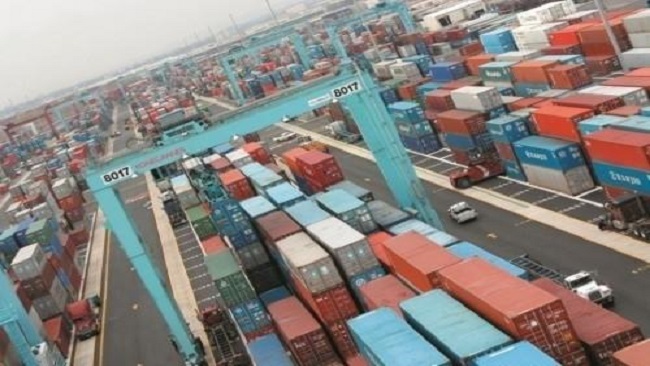COVID-19: Douala traders facing an economic onslaught
An economic onslaught is staring at the face of traders in the Central African country of Cameroon, which is one of the most affected countries by the coronavirus or COVID-19 pandemic in the continent.
The country, known for its varied terrain and wildlife has so far reported 1,017 positive cases, with 22 deaths, according to data compiled by the U.S.-based John Hopkins Coronavirus Resource Centre.
“The virus has slowed down my work. I have to go out and sell few things, even though I do not earn much,” said Adams Patrice, who deals with secondhand goods. He used to have a roaring business on weekends when people on the outings throng to markets selling cheap goods.
“Everything has changed. The customers are afraid. They pass by wearing their protective masks and do not talk to us. They barely stop to look at the merchandise. There is a drought in the market,” he said.
Like Patrice, an electronic retailer Fabrice Fondjeu, has also lost most of his clientele.
“I receive less than five customers a day compared to more than 40 before the pandemic. It has dipped my savings,” he said. He is counting that the government may announce some sops to stabilize the situation.
Although governments worldwide are encouraging digital connectivity as an alternative to physical connectivity, Tamo Christian, a cyber cafe manager, has few customers. He is still relying on the government’s push for digital education, expecting that students who do not have computers and internet connection at home will use his services. He has also cut his daily expenses considerably.
The restrictions on travel have also led to a steep decline in the online sale of tickets, said Geraldine Nbebi, sales administrator of an online ticketing startup. He, however, appreciates the fact that because of social distancing, people are increasingly getting used to digital technology.
Food chain affected
Speaking to Anadolu Agency, Ebouki Lea, a food vendor, said she has been going through difficult times since restrictions on movements. She used to bring goods from villages and then sell them in cities. Regular customers have even abandoned her. Even farmers have limited production in the villages.
The secondhand goods dealer Patrice had thought of going digital, opening an online store, where he would share pictures of goods and receive orders through social networking sites. But he laments that he is on the other side of the digital divide and also does not have funds to open an e-shop.
Even as the Cameroonian government has taken measures for businesses, the fear that economic slowdown will stay for a long time to come is palpable. President Paul Biya had asked the trade ministry to ensure stability in prices and availability of consumer goods. He had also asked officials to come out with plans to regulate the flow of people in markets.
Acknowledging that it was a difficult time for traders, Minister of Trade Luc-Magloire Mbarga Atangana told a local radio station that there was no possibility of a shortage of goods. “The country should be able to rely on its national production and food reserves and count on sea shipments. The country is prepared for any eventuality,“ he said.
Source: Anadolu Agency





